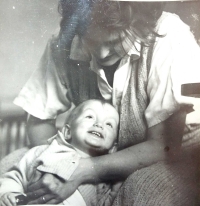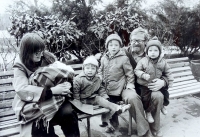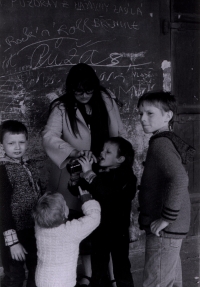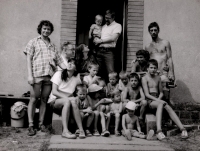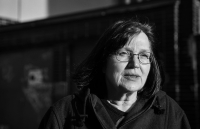That quiet fear that’s always with you

Download image
Marie Kroupová, née Prošková, was born in Prague on 13 October 1950. She has two sisters, Magdalena and Kateřina. Her mother Hana Prošková was a detective book writer and her father left the family. She graduated from university with a degree in chemistry. She took house seminars with professor Růžena Vacková. She met her husband Daniel Kroupa at the seminars. They have five sons and one daughter. Daniel Kroupa signed Charter 77 in January 1977 and the family found themselves in the crosshairs of the State Security Service (StB). Marie Kroupová has devoted her life to taking care of her large family and works at the Music and Dance Faculty of the Academy of Performing Arts in Prague today (2020).
